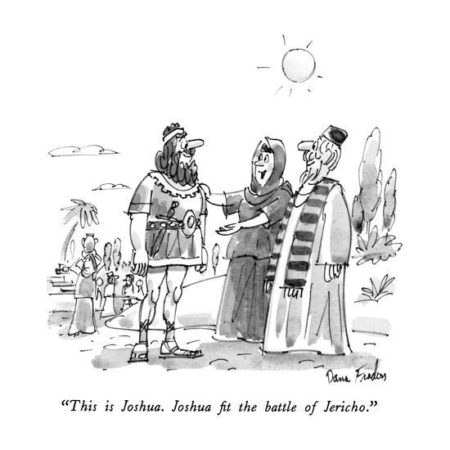
As He Did In Fact Do


“Paul tells us what kind of character a prospective minister should have. He must be a one-woman man, he must be temperate, and he must not have a quick temper. We have a better idea, which involves a good deal of graduate study. In order to get his certification, he must ignore his wife for three years, and teach her what the back of his head looks like. Now this is in no way a criticism of the classical Reformed emphasis on a learned ministry. The problem is not that we seek wisdom and learning in our pastors; the problem is that we measure it by means of stamped papers, as though his wisdom was a pure bred spaniel.”
The Cultural Mind, pp. 92-93
“Our current cultural mania for certification and accreditation, embossed and signed by all the appropriate authorities, cannot be explained apart from our obvious discontent with the praise of God.”
The Cultural Mind, p. 91
Introduction: One of the things that everybody needs to be braced for is a spate of articles, books, think pieces, documentaries, and the like on the rising threat of Christian nationalism. That being ...
“The principle here is that you cannot export what you don’t have, and if you try, you will only wind up exporting what you ‘do’ have. Whenever Pharisees go on a mission, the result is Pharisaism overseas. When scriptural ignorance goes on a crusade, the result is crusading ignorance. The applications to our situation should be obvious. The evangelical world in North America is doctrinally confused, morally compromised, liturgically anemic, and culturally superficial. So what happens when we take the show on the road?”
The Cultural Mind, p. 88
Letter to the Editor: I saw an ad in my August/September issue of First Things for Paul D. Miller’s just released book “The Religion of American Greatness: What’s Wrong with ...
“An apologist, rightly understood, is a missionary of the lovely.”
The Cultural Mind, p. 86
Introduction: Last week, in my post on David and Bathsheba, I used an illustration to mark the difference between a Christian view of the antithesis, and a critical theory version of the antithesis—the ...
“If there is no absolute standard of morality, then anything goes, including the worst forms of absolutism. If biblical absolutes are figments of our own minds then the first thing we could do, if we wanted to be consistent, would be to hang all the relativists and burn all their houses. Of course, trying to be consistent like this is inconsistent, which, in an odd sort of way, makes it consistent again. It is kind of like looking at that endless series of the back of your head in the opposing mirrors at the barber shop. Ethical relativism is not just wrong; it is incoherent.”
The Cultural Mind, p. 85
“A baptized individual has the obligation to have his life point the same direction his baptism does—to Christ and to His righteousness. Many refuse to do so, but this does not alter their obligation in the slightest.”
The Cultural Mind, p. 80